
|
Scooped by
Canadian Vocational Association / Association canadienne de la formation professionnelle
onto Vocational education and training - VET April 9, 2014 6:25 AM
|
Get Started for FREE
Sign up with Facebook Sign up with X
I don't have a Facebook or a X account

 Your new post is loading... Your new post is loading...
 Your new post is loading... Your new post is loading...
From
mailchi
Vancouver, July 2025 — The Canadian Vocational Association (CVA-ACFP) delivered a DACUM I training workshop in Vancouver, British Columbia, for a select group of professionals from WorkSafeBC. The five-day training, led by John Avery (President of CVA-ACFP and DACUM trainer) and Bruno Chauvel (CVA-ACFP DACUM trainer), marked a significant milestone in the advancement of competency-based methodologies within WorkSafeBC, British Columbia’s provincial agency responsible for promoting workplace health and safety, preventing injuries, and supporting return-to-work programmes for injured workers.
Given the dazzling array of technological advancements and pressing environmental issues this world teems with, one could say that TVET is, in many ways, is the bridge between advancement and sustainability. In perfect harmony with the United Nations Sustainable Development Goals (SDGs), the lifeblood of enriched education and extended job opportunities infuses the TVET landscape with a vision of a brighter future.
In the World of TVET, we must have an unquenchable passion for the highest education and skill development standards. Behind our passion stands Quality Assurance (QA), the ray of light that drives constant growth of a program, that guides our students on their learning and skills acquisition journey.
The evidence presented, which is complemented by reflections on the suitability, effectiveness and sustainability of the selected instruments, will help policymakers to introduce better targeted and more effective incentives that benefit learners, employers and societies.
This Handbook offers practical guidance for measuring and assessing green jobs and skills for green jobs within in the context of monitoring, evaluation, and learning (MEL).
All you need to know about our impactful Online Freelancer Training that prepares individuals to succeed in the digital economy and the new world of work.
Micro-credentials are impacting upon universities around the world. Offering flexible skills-focused short learning, they are increasingly popular among higher education students, professional learners and employers. University World News explores how micro-credentials are driving changes to learning, qualifications and collaboration with industry.
This study explores the use of analytical artificial intelligence (AI) to enhance lesson planning in teacher education, particularly in vocational business education. Providing detailed, individualized feedback for lesson planning is challenging for university instructors. An analytical AI platform that offers expert-level feedback on lesson plans could be a suitable supplement to traditional feedback as it balances out critical aspects of generative AI systems. In a longitudinal study with 103 participants, an experimental group received AI feedback on the lesson plans they developed throughout a semester, while a control group received human feedback. Results indicate that AI feedback can match or surpass human feedback in some dimensions, improving planning aspects like certain content-related sustainability aspects, action orientation, relatedness or even technology use, lesson structure, and learner engagement. Besides the integration of didactic planning dimensions into the lesson plans, this study looked at student motivation, self-reported AI literacy, AI attitudes, self-efficacy with digital technologies and digital competences. Results of these meta-dimensions show that the mere use of AI does not automatically enhance AI literacy, change attitudes or improve motivation. The study suggests that as a consequence, analytical AI platforms can effectively supplement traditional feedback but should be used within a holistic framework.
The dual system in Austria depends on companies’ willing and ability to train apprentices. This is done on a voluntary basis and, so businesses must weigh the costs against the benefits. The latest analyses reveal that this investment pays off for many businesses, both economically and through various non-monetary benefits.
This report offers an overview and analysis of WBL in Serbia, providing insights into various aspects of its design and implementation. The key messages highlight the importance of aligning the country’s WBL practices with the European quality criteria, emphasising the progress made in recent years, while identifying areas for further improvement. The findings cover WBL in initial vocational education and training (IVET), WBL in continuing vocational education and training (CVET), and WBL in active labour market programmes (ALMPs)
Ministers responsible for Vocational Education and Training (VET) from across Europe convened in Herning, Denmark, on 11 September to endorse “The Herning Declaration on attractive and inclusive Vocational Education and Training for increased competitiveness and quality jobs 2026-2030”. The forward-looking Declaration marks a pivotal moment for European skills policy as the continent leads digital and green transformations to meet economic competitiveness challenges
Artificial intelligence (AI) is reshaping the way we learn, teach and make sense of the world around us, but it is doing so unequally. While one-third of humanity remains offline, access to the most cutting-edge AI models is reserved for those with subscriptions, infrastructure and linguistic advantage. These disparities not only restrict who can use AI, but also determine whose knowledge, values and languages dominate the systems that increasingly influence education. This anthology explores the philosophical, ethical and pedagogical dilemmas posed by disruptive influence of AI in education. Bringing together insights from global thinkers, leaders and changemakers, the collection challenges assumptions, surfaces frictions, provokes contestation, and sparks audacious new visions for equitable human-machine co-creation. Covering themes from dismantling outdated assessment systems to cultivating an ethics of care, the 21 think pieces in this volume take a step towards building a global commons for dialogue and action, a shared space to think together, debate across differences, and reimagine inclusive education in the age of AI. Building on UNESCO’s Recommendation on the Ethics of AI, its Guidance on Generative AI in Education and Research and its twin AI competency frameworks for teachers and students, such a global commons can direct collective sense-making and bold reimagination around curricula, pedagogy, governance and policy with human rights, justice and inclusion at its core. Cutting-edge AI models empower some, while 1/3 of humanity remains offline
Teacher self-efficacy refers to teachers' beliefs in their capacity to influence student learning and engagement. A strong sense of self-efficacy has been identified as a key factor associated with instructional practices and the quality of teacher–student relationships. The present study focuses specifically on vocational education and training (VET) pathways, and aims to examine the impact of teachers' sense of self-efficacy on the academic performance of VET students. In addition, this study evaluates the suitability of the Teachers' Sense of Efficacy Scale (TSES) for use with VET teachers. Data from a survey of 285 vocational education and training teachers were analyzed. The findings indicate a redefined questionnaire structure, revealing a new item distribution. Moreover, the results show that teachers' sense of self-efficacy significantly predicts students' academic performance. However, when considering the newly identified factors, certain dimensions exhibit contrasting influences on students' academic performance. Thus, Efficacy in Promoting Engagement and Adaptation positively influences students' academic performance, while Efficacy in Questioning and Explaining is associated with a negative impact. This study sheds light on the relation between teacher self-efficacy, individual and contextual factors, and student academic performance in vocational education. |
A powerful new white paper by Tom Chatfield explores how AI is reshaping learning — and what educators must do to protect (and elevate) human skills.
In the rapidly changing technological and workforce context, the world of Technical, Vocational Education and Training (TVET), stands at an important moment. The following blog post explores the merger of TVET with Artificial Intelligence (AI) and how such amalgamation will propel TVET into the future. It guarantees the relevance, adaptability, and inclusion of tomorrow's workforce in today's preparation.
Discover how the changing world of TVET is embracing technology, AI, and digital skills to shape the future of skills development. This blog explores the evolving landscape of technical and vocational education, emphasising the importance of adaptability and innovation in today's job market. Join us
This Compendium presents practical examples of interventions promoting green jobs and skills for green jobs, that were supported by development partners from the G7 and the European Union (EU). Each case, demonstrating proof of impact and responding to a set of quality criteria, has been documented to foster learning and knowledge sharing among practitioners.
In many Technical and Vocational Education and Training (TVET) systems, the discussion about transformation has traditionally focused on infrastructure, curricula, and technology. However, increasing research suggests that the most influential factor for reform lies elsewhere — in the leadership ability of those who manage institutions from within. The question today is not whether leadership is important, but how leadership capacity can be developed in a sustainable, contextual, and evidence-based way.
The green transition is reshaping labour markets, creating demand for a workforce able to support low-carbon economies. Vocational education and training (VET) plays a key role in preparing workers for green jobs, especially in sectors like construction, transport, and energy. Nearly one-quarter of young VET graduates work in “green-driven” jobs – more than their tertiary-educated peers. These jobs range from newly emerging, high-skill positions to evolving mid-skill roles that VET graduates often fill. However, many also work in high-emission sectors at risk of decline, making targeted reskilling essential. In response, VET systems may need to adapt quickly. This includes updating curricula in line with labour market intelligence, expanding access to post-secondary technical education, facilitating transitions out of carbon-intensive industries, strengthening inclusive career guidance, and embedding transferable core skills in all programmes.
In autumn 2025, seven updated vocational apprenticeship occupations have come into effect in Germany. The Federal Institute for Vocational Education and Training (BIBB), together with partners from industry, trade unions, and government, is responding to evolving technological, environmental, and social demands in the labour market.
This resource will help TVET stakeholders reflect upon, and share knowledge about, the challenges and opportunities facing TVET systems. The Atlas works within the BILT framework of three I’s: identification, integration and implementation of new qualifications and competencies in TVET. It has a special focus on the twin transition of greening and digitalization affecting the future of work and society.
The three I’s
More women in Spain are enrolling in vocational education and training (VET), with recent data showing steady growth in participation and qualification rates across levels and professional branches.
This report examines the progress made over two decades (2000-2020) in transforming lifelong learning into a reality for individuals in Europe. The study finds that, while significant progress has been made in promoting flexible and inclusive education and training systems, barriers and challenges remain.
The report explores the causes and magnitude of anticipated skills shortages through at least 2032. It also examines potential strategies to address impending skills shortages and mitigate their economic impacts.
AI often feels abstract, as a cheat or intimidating, especially for educators deeply rooted in hands-on, practical teaching. However, it doesn't have to be. AI can become a powerful ally in your pedagogical toolkit with the right understanding and tools. In this blog, I will explore how AI is reshaping technical education, why TVET educators have nothing to fear from its rise, and how it can directly support the development of practical skills. Together, we'll uncover the unique opportunities the AI era offers to TVET professionals and learners alike.
It’s 2027. You wake up, ask your AI assistant for job leads, and it replies: |









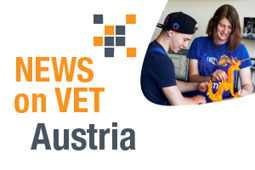





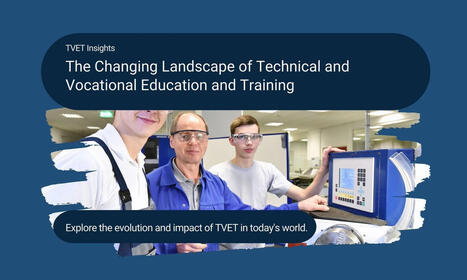


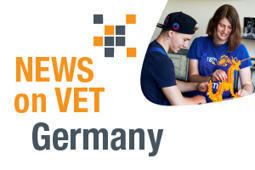
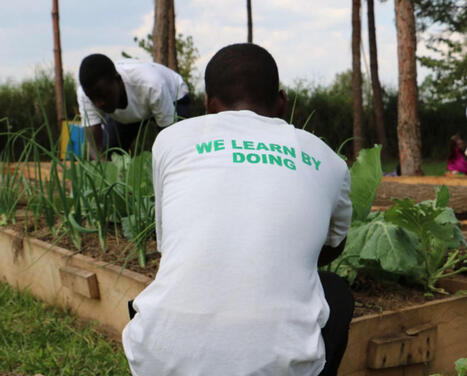
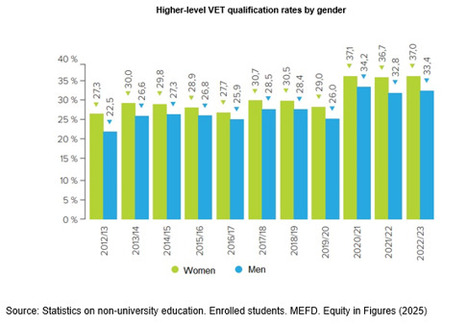









http://cva-acfp.org/archive/2014-03-en.html
Each month, the Canadian Vocational Association presents a survey of relevant links and documents on various specializations and topics related to the field of professional training, in English and French.
----
Tous les mois, l'Association canadienne de la formation professionnelle vousprésente une compilation de documents et de liens pertinents sur différentes spécialités et thématiques liés au domaine de la formation professionnelle.
Le bulletin est en anglais et en français.
;
Join us in LinkedIn http://goo.gl/O9isT ;
Twitter https://twitter.com/CVA_ACFP ;
Scoop.It! @Canadian Vocational Association / Association canadienne de la formation professionnelle. Includes all the tags